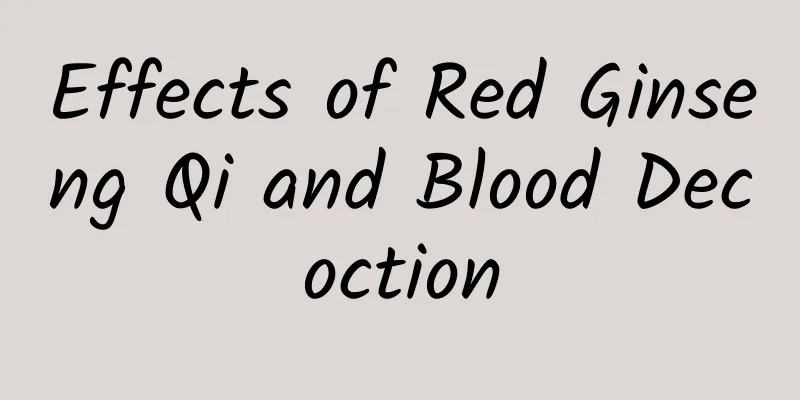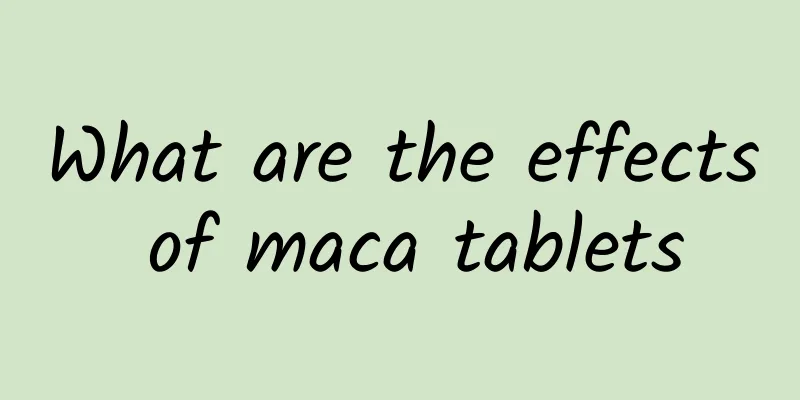Why do I always have blood clots during my period?

|
Menstruation is a normal physiological behavior of women. It is caused by the cyclical growth and expansion of the female ovaries, followed by the shedding of some useless tissues and bleeding. It is normal to have bleeding during menstruation. However, some people always have blood clots during menstruation. The presence of blood clots may be an adverse reaction, which people need to understand. Here we will explain why there are always blood clots during menstruation. 1. What causes excessive menstrual blood clots? Menstruation is caused by the shedding of the endometrium, which mixes with blood to form menstrual blood. If there is a large amount of endometrial shedding, that is, blood clots, it is a normal physiological phenomenon. However, if the menstrual flow is heavy and there are many blood clots during menstruation, it is blood stasis. When you have heavy menstruation, you can consider taking Chinese patent medicine to stop the bleeding. However, after the bleeding stops, you can go to the local hospital for a detailed examination in time, mainly to rule out other causes. The presence of blood clots in menstrual blood is related to the amount of bleeding and the speed of bleeding. If the bleeding is heavy and there is not enough time for it to be discharged, it will coagulate into a blood clot and be discharged. Often, the presence of blood clots may indicate that the amount of bleeding is relatively heavy at this time, so it forms a clot. When menstrual blood comes out, the endometrium will fall off, but it may be some fragments, and the blood clots should still come from the blood vessels that supply the endometrium. In other words, the discharge of blood clots during menstruation indicates excessive menstrual flow. In addition, normal menstruation lasts for 2 to 7 days, and in some cases it lasts for 3 to 5 days. If the menstrual period lasts more than 7 days, it is considered as prolonged menstruation, which is an abnormal phenomenon and should be taken seriously. Prolonged menstruation and heavy menstrual blood clots may be caused by low estrogen levels, uterine fibroids, polyps, endometritis and intrauterine contraceptive devices. Therefore, you need to go to the hospital's gynecology department for examination and diagnosis so that you can receive symptomatic treatment. 2. Causes of excessive blood clots during menstruation (1) Qi stagnation: Qi is the commander of blood. When Qi flows, blood flows. When Qi stagnates, blood coagulates. When emotions are stagnant, liver qi is stagnant, and qi flow is unfavorable, menstruation will be blocked and clots will form. (2) Cold stagnation: “When the temperature is warm, the blood becomes slippery, while when the temperature is cold, the blood becomes coagulated” and “When the blood is affected by cold, it coagulates into lumps”. Due to external cold evil, or internal injury caused by cold food, or inherent yang deficiency and internal cold, the cold evil will accumulate in the Chong and Ren meridians, and the blood will be coagulated by the cold and form lumps during menstruation. (3) Qi deficiency: Excessive fatigue or long-term illness depletes vital energy, resulting in the inability of Qi to circulate blood and sluggish blood flow, which can cause menstruation to form blood clots. (4) Blood heat: due to external heat evil, or excessive consumption of spicy and hot food, or excessive use of medicines that warm the uterus, as well as emotional injury, the five emotions turn into heat, and the heat is hidden in the Chong and Ren meridians. The blood is tormented by the heat evil and forms clots during menstruation. 3. What to do if there are a lot of blood clots during menstruation The causes of menorrhagia are due to physical weakness, insufficient vital energy, overeating, fatigue, and long-term illness that damages the spleen, resulting in spleen deficiency, weak vital energy, and loss of qi, water, and blood. The body is naturally yang-dominant, the seven emotions are excessive, the five desires transform into fire, excessive consumption of spicy food, external heat evil, the hidden heat takes over, and the blood is forced to flow vigorously. It is caused by factors such as excessive strain during menstruation, long-term blood stasis, postpartum blood stasis, and inability of new blood to return to the menstruation. The treatment of this disease should nourish yin and cool blood, promote blood circulation and remove blood stasis, replenish qi and retain blood, and consolidate Chong and stop bleeding. |
<<: What medicine should I take if I have blood clots during menstruation?
>>: What's going on with a protruding clavicle?
Recommend
What is causing the bloating and pain on the right side of my lower abdomen?
Some people experience bloating and pain on the r...
What causes underbite?
Overbite is a relatively common dental deformity....
Does lavender treat insomnia?
Insomnia is very troubling for many people, becau...
What are the symptoms of blood-heat type eczema?
Everyone should also pay attention to the symptom...
What to do if you have allergies on your face during confinement
During the confinement period, many things are di...
What are the treatments for femoral neck fractures?
Femoral neck fracture is actually a relatively co...
What foods should I eat if I have thin hair?
Thin hair and severe hair loss are situations tha...
What to do if you sweat
In the hot summer, it is natural for people to sw...
There are many red spots on the child's body
When a child has a lot of red spots on his body, ...
Drugs for treating scar hyperplasia
We all know that there are some people in life wh...
How to make breasts bigger
Young women all hope to have tall and plump breas...
Is there a permanent way to remove hair?
Body hair is an indispensable part of human skin....
Where to apply Sanfu stickers for rhinitis
Sanfutie, also known as Sanfutianjiu, is a Chines...
This traditional Chinese medicine recipe for warming the kidney and strengthening yang is amazing!
Traditional Chinese medicine believes that: "...
The efficacy and function of traditional Chinese medicine Aconite
The Chinese medicine aconite is very common. This...









